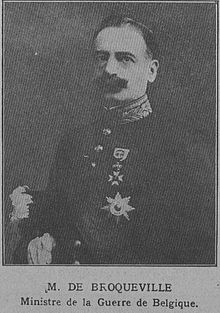1932 Belgian general election
The Catholic-Liberal government led by Jules Renkin faced rising unemployment, derailing public finances and strikes benefiting the Communist Party.
On 18 October 1932, Prime Minister Renkin resigned under pressure from King Albert I, allowing the more experienced Charles de Broqueville to take charge.
He immediately dissolved parliament and scheduled parliamentary elections for 27 November 1932.
Municipal elections had also occurred on 9 October 1932, where the Catholic Party lost ground to socialists and liberals.
His strategy worked; the Catholics won, but also the socialists and communists gained ground, whereas the liberals lost seats.
